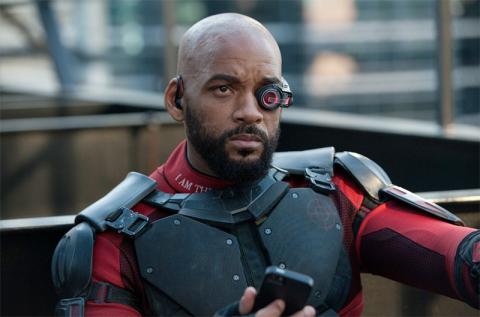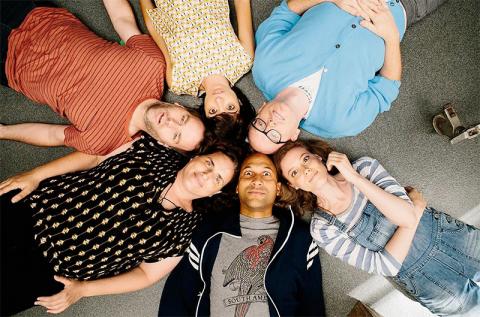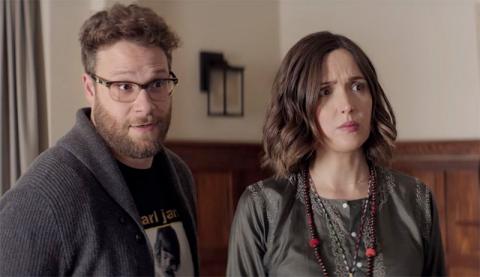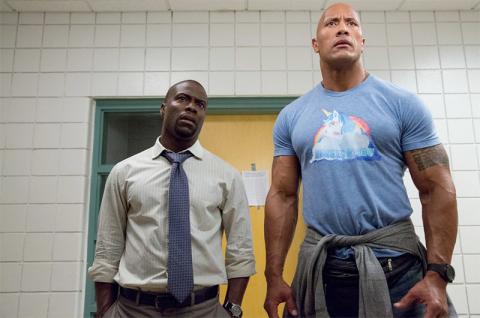Industry Advice from Alumni Working on This Summer’s Biggest Films

David Bach ’93, dialogue and ADR supervisor for "Suicide Squad," starring Will Smith, is one of many alumni in the industry who offers advice to current students and those getting started with film-related careers.

Kate Bilinski ’10, sound editor for Mike Birbiglia’s dark comedy "Don’t Think Twice," says, “You need to show up, be present, and work your butt off.”

Daniel A. Brown worked on music preparation for "The BFG," Steven Spielberg’s fantasy/adventure film based on the novel by Roald Dahl.

Alex Lowe ’92, who handled Pro Tools playback for "Captain America: Civil War," notes that his interpersonal qualities have proved to be as important as his technical skills in this kind of work.

Lowe also worked on "Neighbors 2: Sorority Rising," starring Seth Rogen and Rose Byrne.

Bilinski’s sound editing work was enlisted for "Wiener-Dog," which weaves together the tales of multiple dachshund owners who take care of the titular dog.

Brown also handled music preparation for "Central Intelligence," starring Kevin Hart and Duane “The Rock” Johnson. Brown landed his current position via a referral from Berklee’s alumni office in LA.
The hallmark of successful Berklee alumni is their willingness to give back to the community, and the dozen people profiled in our feature on alumni working on music and sound for some of this summer’s biggest films are prime examples of the eagerness to share knowledge that permeates the Berklee community. All of those profiled had words of advice for current students and more recent alumni looking to get their start in the film industry. Edited and abridged excerpts of that advice are presented below.
Marcelo Zarvos ’88, composer for Our Kind of Traitor: “For composers, I would say look at TV. That is where most of the opportunities are for someone coming up now. But most importantly, try to find your own voice. Don’t focus solely on chasing what everyone else does and sounds like. I am a big believer that your opportunities will come from sounding like yourself and while that path may take longer, I feel it is also the most direct one if you really want to do this for a living.”
Angelo Milli ’99, composer for Hands of Stone: “Berklee played a major role in my formation as a musician and a film composer. Since I majored in film scoring, I implement a lot of what I learned at Berklee on a daily basis. Scoring films or TV is a very technical profession. Composers today need to be skilled not only in notation, orchestration, and general music theory, but highly proficient in several music/recording softwares. They have to be able to deliver a great-sounding product, often on shoestring budgets and ridiculous deadlines. They need to be comfortable wearing many hats. Berklee is a great place to learn the tools of the trade and the process.”
Kate Bilinski ’10, sound editor for Don’t Think Twice and Weiner Dog: “You need to show up, be present, and work your butt off. I started off with an internship at a post-production house. If you find something that you love to do, don’t be afraid to dive into it with your all. Definitely reach out to people from the Berklee network or that you know, because all of the positions I’ve gotten have been through word of mouth. Since Berklee has people in every corner of the world, it’s been very helpful to have that in my corner.”
Read more about alumni working on many of this summer’s top films.
Batu Sener ’12, additional music composer for Jason Bourne: “The best decision I made while I was at Berklee was taking the elective orchestral mock-up course. I strongly recommend it to film scoring majors. It really doesn’t matter how good of a composer you are unless you are able to present your compositions properly.”
Kevin Kliesch ’92, Emmy-winning composer (Sofia the First) and orchestrator for Sausage Party: “Berklee’s concentration on technology 25 years ago certainly helped me succeed in my career, and I believe it’s essential even more so today that students have a solid grasp of technology to succeed.”
Vince Caro ’87, original production dialogue recording for Finding Dory: “Never work for free. Competition and downward pressure is immense, and therefore people are easily taken advantage of. I think this is something schools like Berklee should make clear to perspective students. That said, I believe that opportunities exist and because the ‘price of admission’ into the industry (with the affordability of gear and the proliferation of the DAW) is so low, talented and strong business-minded people can find a measure of success.”
Alexander Lowe ’92, Pro Tools playback on Ghostbusters, Captain America: Civil War, Neighbors 2: Sorority Rising, and other recent films: “Get really good at one thing. That typically allows opportunities to open up in other areas. I learned Pro Tools very well and got calls to fix people’s systems all the time. That sparked a whole bunch of stuff for me in terms of mixing, editing, and the film work.”
David Bach ’93, dialogue and ADR supervisor for Suicide Squad: “Musicians tend to be good at recognizing how all the sounds—backgrounds, sound effects, Foley, production dialogue, and score or source music—need to work together, sometimes occupying a space and sometimes handing off, and also when to hit it hard and when to lay off. There are lots of similarities to song construction. In my view, we’re all basically independent contractors, so any way to figure out your own business model serves to keep you in the game.”
Leah Dennis ’13, score coordinator for The Angry Birds Movie: “I started as an intern. I went in with no ego and no expectation of what the internship would entail. I just wanted to be there, and I tried to be the first one in and the last one to leave, or at least leave much later than they expected me to. I wanted to be there as much as possible to really grasp and absorb what was happening in the industry. So I had tremendous success in the internship and that led me to a job at [composer] Heitor Pereira’s studio. As an intern, you try to make yourself indispensable and make yourself the solution, not the problem, and the more you are the solution, the more you become indispensable.”
Justin Moshkevich ’07, score mixer for Mike and Dave Need Wedding Dates: “Time management, staying organized, and being a team player are important for staying sane. For score mixers, your mixing skills need to be sharp, and your templates and workflow flawless. Advanced knowledge of Pro Tools is also crucial when things need to move fast.”
Daniel A. Brown ’13, music preparation for Hands of Stone, The Secret Life of Pets, The BFG, Central Intelligence, and other summer films: “Make sure your local alumni office knows about you. You can’t just sit around waiting for the phone to ring, though. You need to have some real-world experience before you land bigger projects. No one is going to trust their baby—their very expensive baby—to you without seeing that you’ve done it before. So you’ve got this catch 22: you need work but no one will give it to you without you having worked first, even with a degree from Berklee. So a lot of people look for internships at big studios or for prominent composers. I went to local film festivals and indie filmmaker groups and got some gigs doing indie TV pilots. A friend wrote a musical and I persuaded her to let me orchestrate it, which helped a Broadway producer find my website when Googling for a mock-up guy. That gave me some great score prep and mock-up examples to show off when that phone call came to interview for [music preparation company] JoAnn Kane.”
Russell Gorsky ’11, sound effects editor on Swiss Army Man: “Never stop making connections, and never let your job turn into just a paycheck!”
